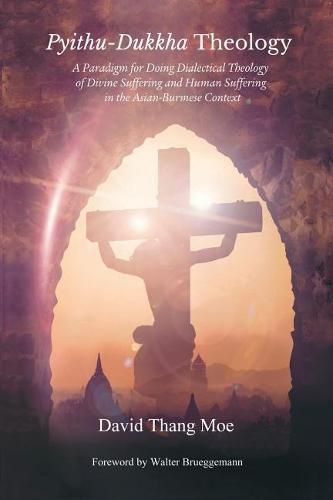Readings Newsletter
Become a Readings Member to make your shopping experience even easier.
Sign in or sign up for free!
You’re not far away from qualifying for FREE standard shipping within Australia
You’ve qualified for FREE standard shipping within Australia
The cart is loading…






This title is printed to order. This book may have been self-published. If so, we cannot guarantee the quality of the content. In the main most books will have gone through the editing process however some may not. We therefore suggest that you be aware of this before ordering this book. If in doubt check either the author or publisher’s details as we are unable to accept any returns unless they are faulty. Please contact us if you have any questions.
A great central reality of contemporary church theology is that Western hegemony has been decentered by the growth and vitality of gospel faith elsewhere in the world. This decentering of Western theology–with its imperial assumptions and its Enlightenment epistemology (either in the affirmations of progressivism or in the resistance of evangelicals) –means that theology can and will be expressed in other terms. This in turn means that neither Rome nor Wittenberg nor Geneva nor Canterbury is any longer the epicenter of theological work.
In his wide-ranging study, David Moe brings a fresh voice to the theological conversation from his home base of Myanmar (Burma). To be sure he makes important appeal to Western theology, but seeks to recast it in terms of Asian, spe- cifically Burmese categories. This rearticulation of faith pivots on the suffering mission people. This core concept permits Moe to appeal to Western theologians who have focused on God’s ‘suffering (Moltmann, Volf), but also to consider an interface with Korean Minjung theology and Indian Dalit theology and the cho- rus of Asian voices that have articulated such thought. Before he finishes, Moe’s discussion moves in the direction of a liberation hermeneutic with its political implications.
–Walter Brueggemann, Columbia Theological Seminary
$9.00 standard shipping within Australia
FREE standard shipping within Australia for orders over $100.00
Express & International shipping calculated at checkout
This title is printed to order. This book may have been self-published. If so, we cannot guarantee the quality of the content. In the main most books will have gone through the editing process however some may not. We therefore suggest that you be aware of this before ordering this book. If in doubt check either the author or publisher’s details as we are unable to accept any returns unless they are faulty. Please contact us if you have any questions.
A great central reality of contemporary church theology is that Western hegemony has been decentered by the growth and vitality of gospel faith elsewhere in the world. This decentering of Western theology–with its imperial assumptions and its Enlightenment epistemology (either in the affirmations of progressivism or in the resistance of evangelicals) –means that theology can and will be expressed in other terms. This in turn means that neither Rome nor Wittenberg nor Geneva nor Canterbury is any longer the epicenter of theological work.
In his wide-ranging study, David Moe brings a fresh voice to the theological conversation from his home base of Myanmar (Burma). To be sure he makes important appeal to Western theology, but seeks to recast it in terms of Asian, spe- cifically Burmese categories. This rearticulation of faith pivots on the suffering mission people. This core concept permits Moe to appeal to Western theologians who have focused on God’s ‘suffering (Moltmann, Volf), but also to consider an interface with Korean Minjung theology and Indian Dalit theology and the cho- rus of Asian voices that have articulated such thought. Before he finishes, Moe’s discussion moves in the direction of a liberation hermeneutic with its political implications.
–Walter Brueggemann, Columbia Theological Seminary